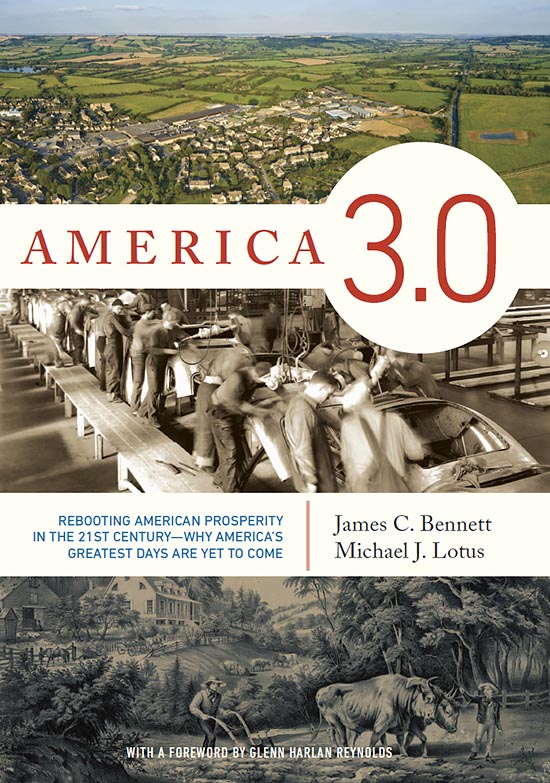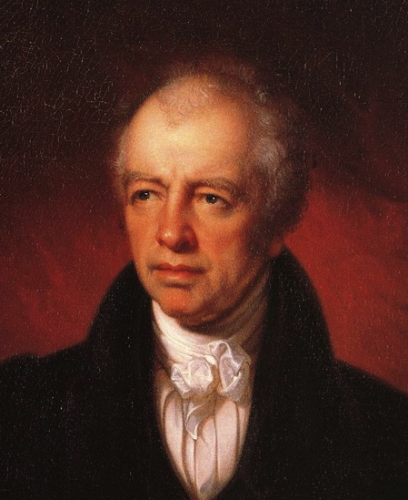Daniel Hannan‘s wonderful review of America 3.0 is entitled “America’s greatest days lie ahead provided she is true to herself.” This is a sentiment with which we heartily agree.
Mr. Hannan understands and concurs with the both the letter and the spirit of our book. For example, he shares our fundamental optimism:
A generation from now, Americans will be richer, more leisured, healthier and longer-lived than ever. That sentence could have been written at any time since the Mayflower landed (at least of the settlers; it was a different story for the indigenous tribes). It would always have prompted scepticism; and it would always have been true.
These days, it is a sentiment we rarely hear, which is all the more reason to pay attention when we do. In America 3.0: Rebooting American Prosperity in the Twenty-First Century, James C. Bennett and Michael J. Lotus begin by conjuring a cheerful vision of the United States in 2040.
… such a vision may look naïve. But when we ponder human history up to the present, it’s entirely plausible.
Mr. Hannan also agrees with our argument regarding the critical importance of the absolute nuclear family.
The point of the book is not to laud or criticise the Anglosphere’s nuclear family, but to show why it is immediately responsible for the individualistic culture that we share with only a handful of lands (notably the Nordic countries and the Netherlands). It made possible capitalism, because economic relationships were primarily mediated through cash rather than family obligations. It facilitated the industrial revolution, because people did not feel tied to their family plots. It opened up vast new landmasses to settlement, as children set out to establish their own nuclear families. It encouraged the assimilation of immigrants, who could make their way as individuals (though some first-generation Americans understandably struggle to adjust to the unfamilial attitudes of their children). It explains why we hanker after our own little plots, instead of living in neatly stacked apartments or, to flip it about, it explains the suburbs that foreign visitors find so ugly and vulgar.
And go ahead and preorder Mr. Hannan’s forthcoming book, Inventing Freedom: How the English-Speaking Peoples Made the Modern World. Mr. Hannan tells he draws on many of the same sources we do, and we are eager to see his take on the history.





